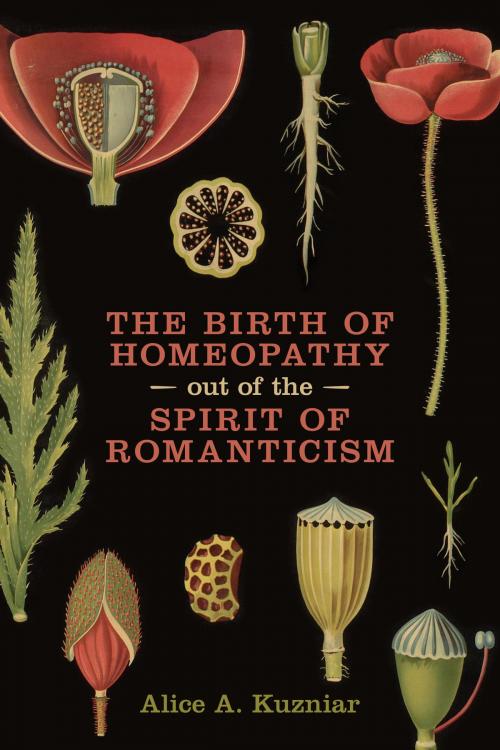The Birth of Homeopathy out of the Spirit of Romanticism
Nonfiction, Health & Well Being, Medical, Reference, History, Science & Nature, Science, Other Sciences, Fiction & Literature, Literary Theory & Criticism| Author: | Alice Kuzniar | ISBN: | 9781487512644 |
| Publisher: | University of Toronto Press, Scholarly Publishing Division | Publication: | April 24, 2017 |
| Imprint: | Language: | English |
| Author: | Alice Kuzniar |
| ISBN: | 9781487512644 |
| Publisher: | University of Toronto Press, Scholarly Publishing Division |
| Publication: | April 24, 2017 |
| Imprint: | |
| Language: | English |
Homeopathy was founded in 1796 by the German physician Samuel Hahnemann who ardently proposed that "like cures like," counter to the conventional treatment of prescribing drugs that have the opposite effect to symptoms.
Alice A. Kuzniar critically examines the alternative medical practice of homeopathy within the Romantic culture in which it arose. In The Birth of Homeopathy out of the Spirit of Romanticism, Kuzniar argues that Hahnemann was a product of his time rather than an iconoclast and visionary. It is the first book in English to examine Hahnemann’s unpublished writings, including case journals and self-testings, and links to his contemporaries such as Goethe and Alexander von Humboldt. Kuzniar’s engaging writing style seamlessly weaves together medical, philosophical, semiotic, and literary concerns and reveals homeopathy as a phenomenon of its time. The Birth of Homeopathy out of the Spirit of Romanticism sheds light on issues that continue to dominate the controversy surrounding homeopathy to this very day.
Homeopathy was founded in 1796 by the German physician Samuel Hahnemann who ardently proposed that "like cures like," counter to the conventional treatment of prescribing drugs that have the opposite effect to symptoms.
Alice A. Kuzniar critically examines the alternative medical practice of homeopathy within the Romantic culture in which it arose. In The Birth of Homeopathy out of the Spirit of Romanticism, Kuzniar argues that Hahnemann was a product of his time rather than an iconoclast and visionary. It is the first book in English to examine Hahnemann’s unpublished writings, including case journals and self-testings, and links to his contemporaries such as Goethe and Alexander von Humboldt. Kuzniar’s engaging writing style seamlessly weaves together medical, philosophical, semiotic, and literary concerns and reveals homeopathy as a phenomenon of its time. The Birth of Homeopathy out of the Spirit of Romanticism sheds light on issues that continue to dominate the controversy surrounding homeopathy to this very day.















